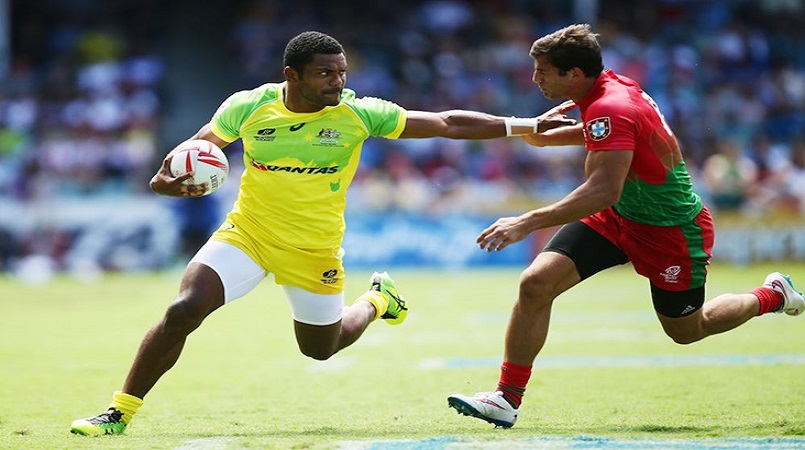
Australian men’s sevens captain Lewis Holland concedes his team’s lack of results this year has opened the door for 15-a-side players to take a run at the 2020 Olympic team.
And, according to Holland, that is not a bad thing for two reasons: the best players possible are required for Olympic success, and secondly, competition for spots will only serve to help Australia’s current players by never letting them feel “safe".
"We haven’t got the results we wanted this year so it does open a little bit of a door up for some of those guys to come and give it a shot,” Holland said.
The Aussie men’s team head to Hong Kong this week, looking to win their first title at the iconic tournament since 1988.
They’ll have to do it the hard way, with Fiji, New Zealand and Kenya in their pool, courtesy of a ninth-placed finish in Vancouver.
The Australian men’s sevens team have had an underwhelming season, having made the semi-finals in only one of six World Sevens Series legs.
Sitting sixth in the standings, the team needs a big turn in fortunes to finish in the top four at the end of the series and automatically qualify for the Olympics.
With each disappointing finish, speculation has grown around the prospect of Super Rugby players - and even Wallabies stars such as Israel Folau - coming in to bolster the Aussie sevens squad for the Tokyo Games.
Holland says the current squad aren't motivated by individual goals but adds no-one should ever feel comfortable, and that all competition has upsides.
"I don’t think that’s their main focus point at the moment (but) don’t get me wrong there’d be a few people there scratching their heads wondering who is coming in,” Holland said.
"We’re here to win, there’s no doubt about that. Australian rugby wants to succeed so we have the best players available and if the likes of some of the Wallabies want to put their hand up and come train, well then so be it.
"They will need time here to prepare for the team, but also personally. Everything is open. You’re always playing, you’re never safe, you should never feel comfortable. That’s the mentality I use and so should those boys in there.”
Quade Cooper, Nick Cummins and Henry Speight all had a crack at making the 2016 Olympics while juggling formats, and only Speight came close; he went to Rio as a travelling reserve.
Then-Aussie coach Andy Friend ultimately came to the conclusion anyone trying to make an Olympics would need to dedicate a full World Sevens Series to the job, and not jump between formats.
One player doing that this year, Waratahs no.8 Michael Wells, said last week the transition was very difficult.
Current coach Tim Walsh says the required time to get up to Olympic standard would be “individually based”, depending on factors like their sevens experience.
"If you’re had a guy who was in sevens for a year or a few years, and then plays 15s, he is certainly going to be able to return to the program a lot quicker than someone who hasn’t played a lot of sevens before,” Walsh said.
"There are so many different factors. There is a formula but it is not a blanket one.”
Holland said time spent in the program was not only important for sevens-specific conditioning, but to gel with teammates and understand the broad roles and responsibilities of a sevens player in a small team.
Walsh said despite the challenges of the very different formats “it’s still rugby”, and that his door was always open for elite footballers to express an interest in becoming an Olympian.
"I am more than happy for people to knock on my door, and that’s a real credit to the program. That people want to play for Australia, want to play sevens and want to go to the Olympics as well,” he said.
